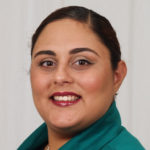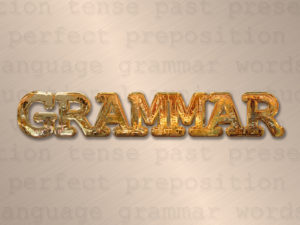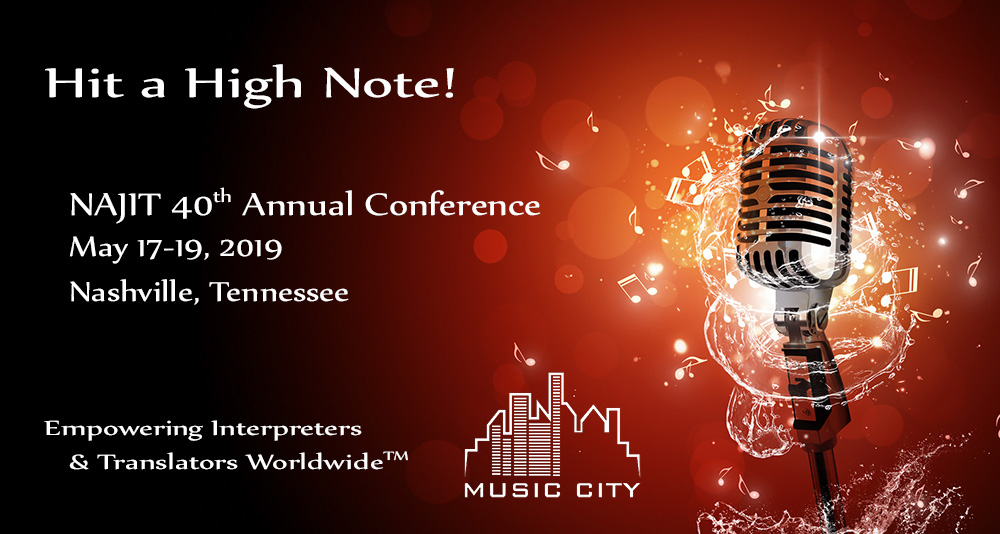Letter from the Editor: Proteus 2018/19 Winter Volume XXXI Issue No 2

Proteus
Issue: 2018/19 Winter Volume XXXI Issue No 2Table of Contents
Editor's Corner
Letter from the Editor Winter 2018/19

By Arianna M. Aguilar
Greetings! The days are getting shorter, the trees have changed colors and the cold has settled in.
Here at Proteus, we have been working on bringing you interesting articles this winter. For example, we have a piece about exploring the comparison of getting a Master’s Degree versus an American Translators Association certification.
Also included in this issue is a book review and an interesting article about the use of the word “it.”
Meet the Editors
Editors of Proteus

Arianna M. Aguilar has a degree in communications and has been interpreting and translating since 1999. She has been a certified court interpreter in North Carolina since 2005, and master certified Spanish-language court interpreter since 2013. She is president of Latino Outreach Consulting of NC, Inc., a translation and consulting agency, and is a published author. She has given presentations on a range of topics at both NAJIT and American Translators Association (ATA) conferences.

Andre Moskowitz is a Spanish-language interpreter certified by the United States federal courts and the California state courts. He is also a Hispanist, lexicographer and dialectologist, who has published a series of works in the areas of Spanish lexical dialectology and Spanish lexicography.He taught English in Colombia and Ecuador for four years, and holds a B.A. in humanities from Johns Hopkins University (1984), an M.A. in translation studies from the City University of New York Graduate Center (1988), and a second M.A. in Spanish with a minor in Portuguese from the University of Florida (1995). He is certified by the American Translators Association as a Portuguese>English, Spanish>English and English>Spanish translator. He is also an editor for Intercambios, the newsletter of the Spanish Language Division of the American Translators Association (ATA).
Feature Articles
Snapshot vs. Impact: A Perspective on Pursuing a Master’s Degree in Translation vs. Pursuing Solely an ATA Certification

By Daniel Sanabria-Morales
Fellow translators and interpreters in the legal field, I want to tell you about a curious fact about American jurisprudence. Several states, including California, Tennessee, Vermont, Virginia, Washington, and Wyoming, allow an aspiring attorney to take the bar exam without having obtained a law school degree first. While relevant regulations and requirements vary per state, several luminaries of American legal and political history such as Abraham Lincoln, John Adams, and Chief Justice of the Supreme Court John Marshall did not study at a law school prior to practicing law (Crockett).
What Does “It” Do?
By Eleanora S. Kamerow
If you can remember your first foreign language class, there might be confusion between “Bonjour” and “Good morning.” Bonjour quite literally means “good-day,” but is often used in the morning nonetheless. If we ask why, the teacher might say it is the norm, nothing to worry about when learning. When we are taking those baby steps in multi-lingual exploration, we will often simplify these sorts of things. When we step into the field of translation, however, these rules become more important.

A Review of Comparative Law for Spanish-English Speaking Lawyers from a Translator’s Perspective

By Salua Kamerow
Throughout the years, legal translation has concerned itself mainly with terminology issues, but a compendium of legal terms in a dictionary does not guarantee the accuracy of their use in the legal field. This review of Comparative Law for Spanish-English Speaking Lawyers is based on the perspective of a translator and self-appointed terminologist of legal equivalences in English and Spanish.
NAJIT News
What is Your Professional Association Doing for You?
Read a recent entry from the NAJIT Observer by the NAJIT Chair, Aimee Benavides. Enjoy!
By Aimee Benavides, NAJIT Chair
Professional associations have an important role in the lives of those they serve. In the case of NAJIT, our association serves over 1100 translators, interpreters, and other professionals in related fields. We are aware, however, that we are not the only professional association in the T&I community. Translators and interpreters have to make decisions about where to invest their hard earned dollars, and which association(s) best suit their needs. As a volunteer board, we understand that because we have to make those same decisions. The number one question we ask when approached by other organizations is, what is the return on investment (ROI)? Associations need to see the value received for every dollar spent, and so do we as individual practitioners and business owners. The Board is cognizant of this and thus it has been one of the impetus for the latest member benefit added to the repertoire of valuable benefits.
NAJIT 40th Annual Conference
NAJIT welcomes members and friends to its 40th Annual Conference celebration, to be held May 17-19, 2019 at the Gaylord Opryland Resort & Convention Center in Nashville, TN. Mark your calendar!
NAJIT’s Annual Conference is the premier event for language professionals and stakeholders of language services. Our conference provides a unique opportunity to network with language professionals. Earn continuing education credits while attending insightful educational sessions focusing on the profession. Our conference offers an innovative and dynamic approach to learning while sparking your creativity, engaging you in thoughtful discussion, and connecting you with colleagues within the language profession.
Sponsor, exhibitor & advertising opportunities open for registration
Don’t miss the opportunity to increase your visibility within the growing community of language professionals attending our annual conference. NAJIT represents more than 1200 interpreters and translators and is not just the association of judiciary interpreters and translators. Our members span the spectrum of interpreter specialization including medical, conference, diplomatic, military, signed languages, and business while many also work as professional translators.
Our meeting provides a unique opportunity to connect with over 400 language professionals during the event. We also have opportunities to gain exposure to our entire membership both during and after the conference. For attendees, the conference provides an opportunity for professional development and networking. For Sponsors, Exhibitors, and Advertisers, this conference gives you a multitude of opportunities to reach this community in a meaningful way.
Reserve your hotel room early: Space is Limited!
Win a Free Hotel Night!
Stay at the conference hotel to be eligible to win a free night stay. Two lucky winners will have their room bill credited with one free night including tax. Winners to be announced at the Saturday Evening Reception. Must be present to win!
Attendee registration will open early February
Regular Columns
For Better or Verse – Get An Interpreter. Now!

By Hal Sillers
Get An Interpreter. Now!
We need an interpreter. Yes. Right away!
Spanish, Russian, Somali or maybe K’iche’
Which language is needed? Does it matter?
Get someone here to translate the chatter.
Call up the guy who interpreted with ease
Hearings this morning. Was he Chuukese?
Why are you sure that he can’t do Karén?
It’s a foreign language. Just get him again!
Judge is impatient and calendar’s slowing.
You better get someone to keep it flowing.
And, by the way, the attorney’s quite cool,
He is bilingual; took French in high school.
We could not request this sometime ago,
As it came up just now, so we didn’t know.
Interpret by phone? Yes. I guess he could.
Our old speakerphone ought to be good.
Now. how do we get the paperwork done?
Also by phone? Oh, geeez! That’ll be fun!
We have to be there? Can’t he do it alone?
Why did we get this interpreter by phone?
We are not too sure when we’ll call this file.
The interpreter can wait. We’ll call in a while.
We have lots of cases; courtroom is pulsating.
What? There’ll be a charge, even for waiting?
We need an interpreter dispensing machine.
Just like the one where we get our caffeine.
This interpreter stuff puts the court in a bind.
Wait! He’s speaking English…So, never mind.

[Hal Sillers is a MN state and federally certified interpreter of Spanish and frequent contributor to this column. Hal is also the Staff Interpreter for the MN 8th Judicial District.]





